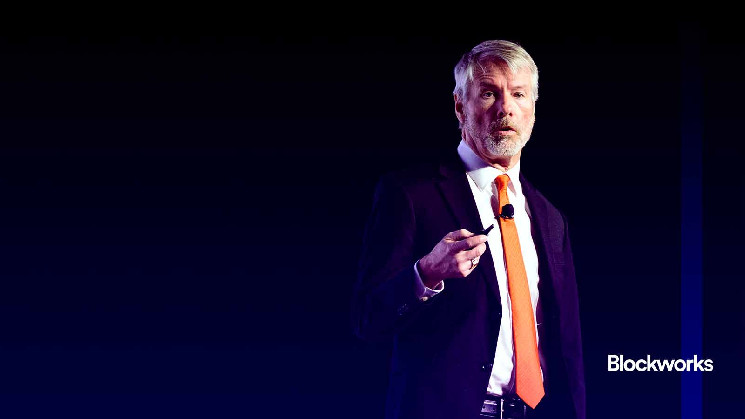
Bill Barhydt, the CEO of Abra and an early Bitcoin adopter who famously bought bitcoin when it was trading below $5, has sharply criticized Michael Saylor’s plan to render his substantial personal bitcoin holdings inaccessible to anyone else forever.
In a new interview on the Supply Shock podcast with Pete Rizzo, Barhydt expressed his frustration, stating Saylor’s strategy “makes absolutely no sense whatsoever.
Saylor, known for his bullish stance on Bitcoin and his company Strategy’s substantial bitcoin investments, recently hinted in a CoinDesk interview that he might send his personal stash of over 17,000 BTC to an “unsendable wallet” for eternity.
Barhydt acknowledged Saylor’s perspective that this move would benefit the Bitcoin community by reducing the total supply (and potentially increasing the value of remaining coins) but offered a spirited rebuttal.
“His perspective is that this is a gift to the Bitcoin community because if you lower the denominator and the numerator, it helps everybody else in terms of the purchasing power. My take is, the Bitcoin community does not need that gift,” he asserted.
Before founding Abra, a global cryptocurrency wealth management platform, Barhydt held roles at companies like Goldman Sachs and Netscape. He gave the first-ever Bitcoin TED Talk when the price of Bitcoin was just $5.
Instead, Barhydt suggested Saylor could use his bitcoin to fund educational services for low-income individuals, establish bitcoin-based banking operations in developing markets, or develop bitcoin-based remittance services.
He emphasized that these initiatives would provide long-term benefits in terms of increasing the total number of the technology’s users.
Barhydt drew a comparison to the early days of Bitcoin, when enthusiasts like himself gave away bitcoin to promote its use and understanding. “When we were giving away bitcoin, it wasn’t like we were telling people, ‘Here, go build your financial fortune.’ It was like, no, you need to understand how this decentralized system allows you to move value between two parties without some trusted third party in the middle,” Barhydt explained.
He contrasted this with Saylor’s plan, which he sees as primarily focused on increasing the value of existing bitcoin holdings. “[Using the money] is a very different perspective than saying, ‘I’m gonna help the value of your bags by burning my bags,’” Barhydt stated.
Elsewhere Barhydt questioned Saylor’s comparison between his own actions and those of Bitcoin creator Satoshi Nakamoto, arguing that Michael Saylor doesn’t need to make a benevolent exit from the software project in quite the same way.
